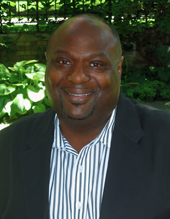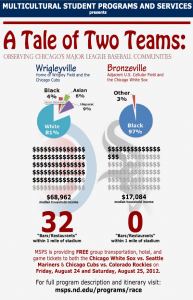I had the privilege over the past weekend of attending a reception in honor of Dr. Richard Pierce, who has just completed his tenure as chair of the Department of Africana Studies at Notre Dame.
And it gave me the chance to think about how much Dr. Pierce and the Africana Studies Department have meant and continue to matter to our work here at MSPS.
Professor Pierce has worked closely with MSPS as Africana chair, volunteering his time to present late-night lectures about Jim Crow, to moderate discussions about Civil Rights and panels about race and sports, and to provide invaluable guidance regarding MSPS programming.
And MSPS and I, personally, have much for which to thank Professor Pierce: for his generosity, integrity, cooperation, and especially his scholarship and intellect.
Because the reality is that without the participation and cooperation of individuals like Dr. Pierce and the existence and support of the Africana Studies Department, a multicultural student affairs office like ours could not exist.
Simply put, Multicultural Student Programs and Services survives at Notre Dame because of the work of the scholars and activists and teachers in integrative and collaborative ethnic studies areas such as Africana Studies.
The depth and breadth of possibilities, for instance, to engage multicultural issues of race, identity, class, power, and privilege—which we believe are essential to the personal development of every student at Notre Dame—rely heavily on the research and teaching about history, literature, politics, theology, and cultural theory found in a cross-disciplinary department like Africana Studies.
Africana Studies informs what we do, offering our office significant relationships with passionate scholars and teachers, as well as introductions to critical theory and curriculum, upon which we draw every single day in order to inform our student services, our educational programs, our advising, and our interactions.
And even more than its scholarship, Africana Studies is grounded in the shared belief “that the study of the peoples, cultures, and histories related to the discipline are integral to understanding our country and the world we live in more fully.” This effort transcends the academy by ensuring critical educational content is relevant and made essential for the survival not only of the discipline, but of humanity more importantly.
And that’s cool.
And MSPS couldn’t do what we do without the Department of Africana Studies’ scholarship and commitment to like-minded ideals about holistic, integrative multicultural education for everyone at Notre Dame.
Definitely check out Africana Studies and what they have to offer coming up in 2012-2013.


